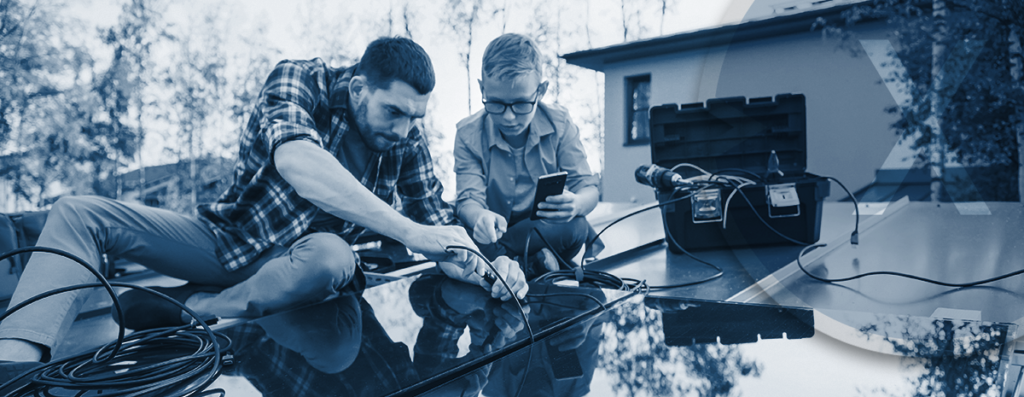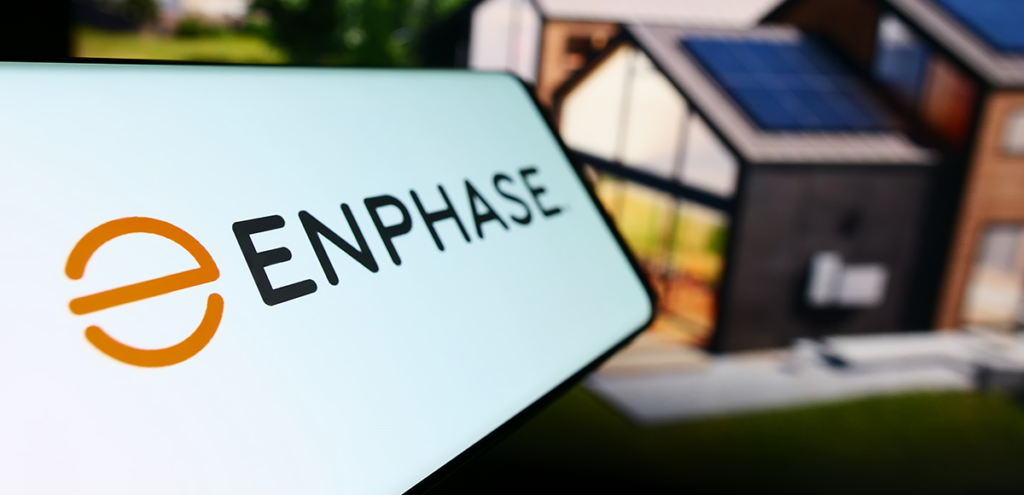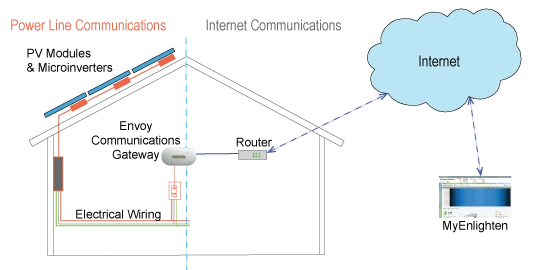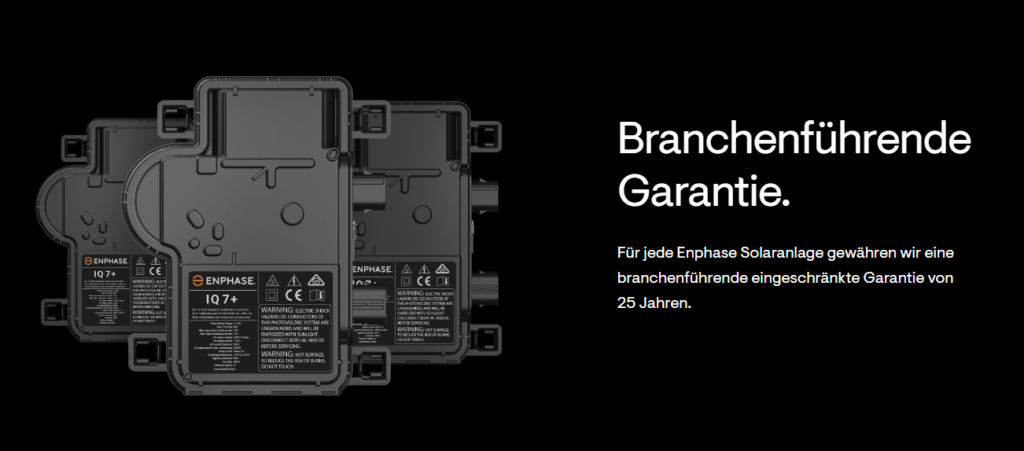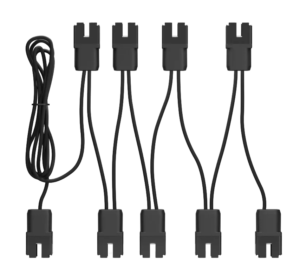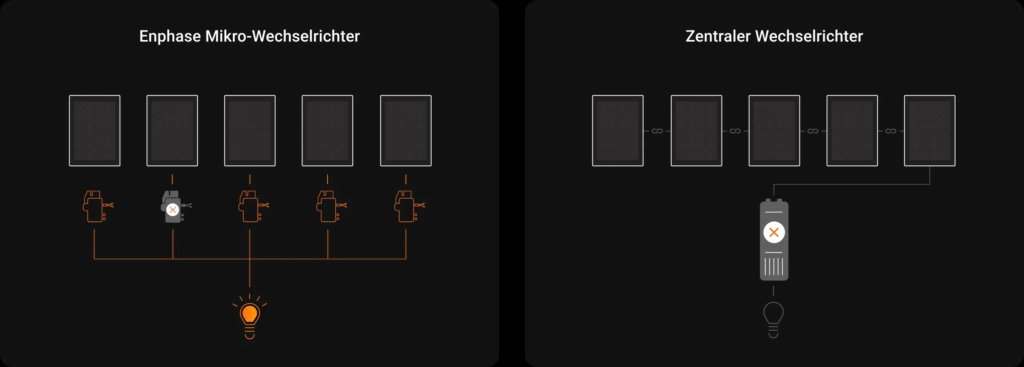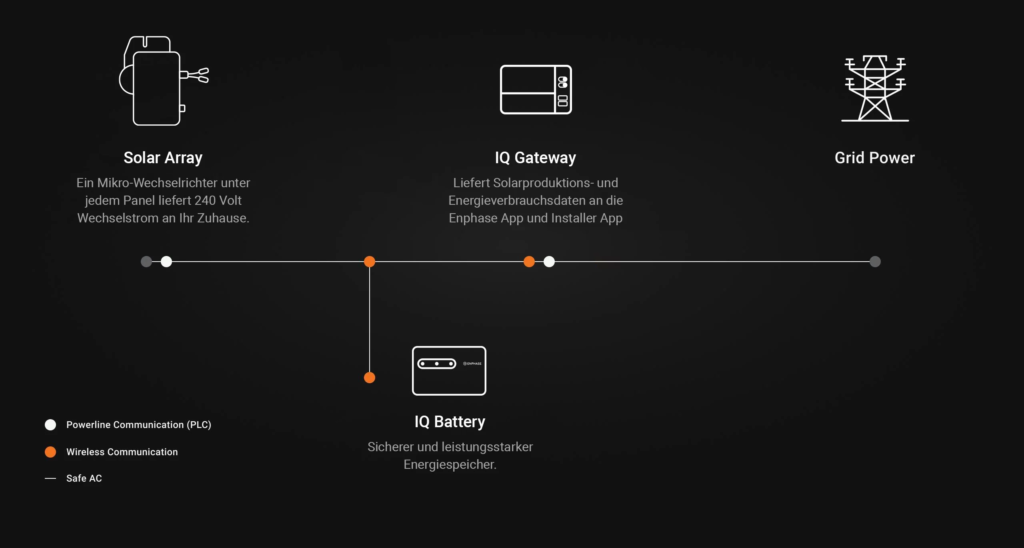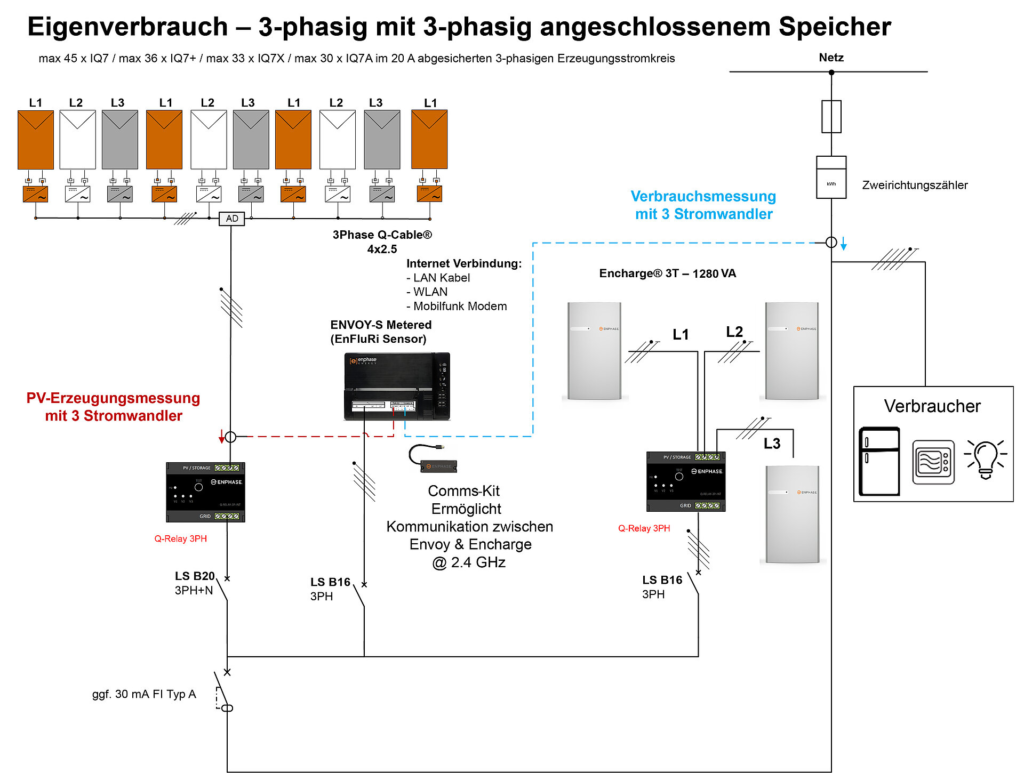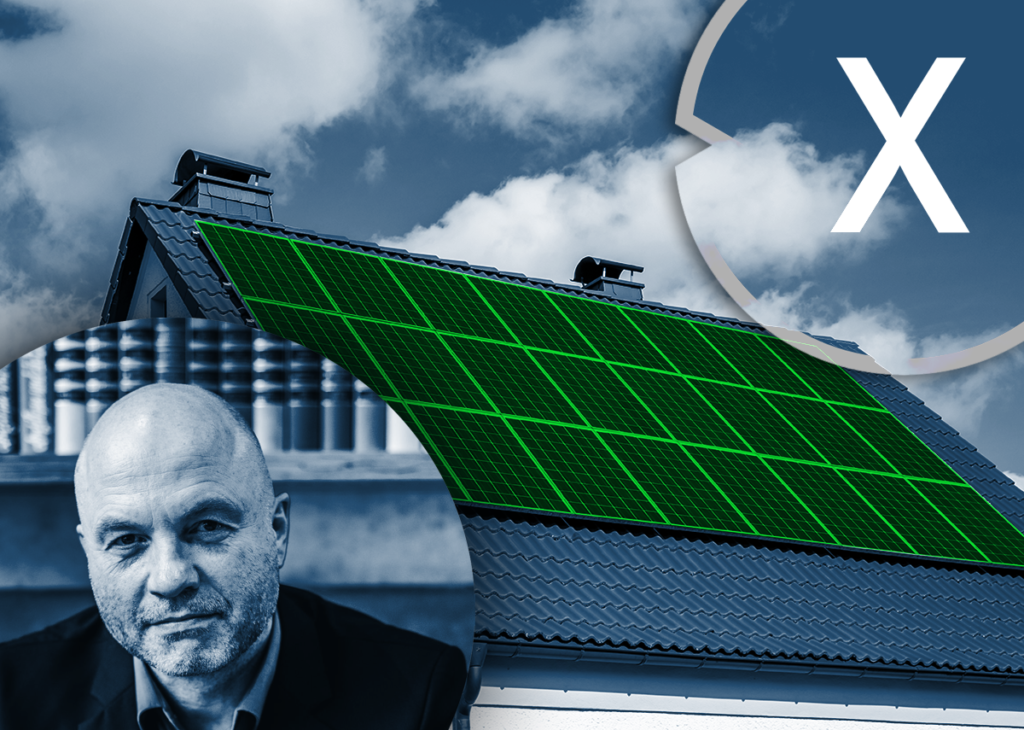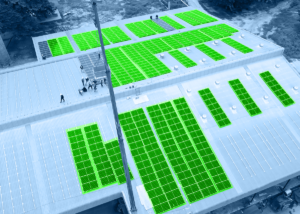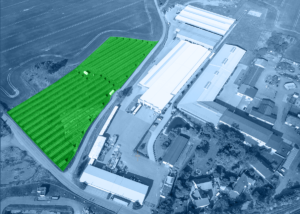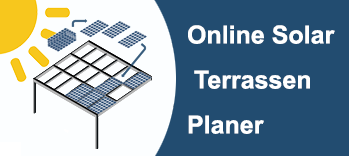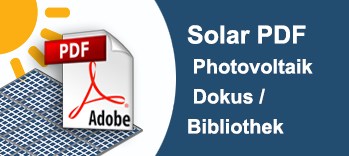New & innovative: Decentralized and modular plug & play solar system - different from the others
Language selection 📢
Published on: February 8, 2023 / update from: February 10, 2023 - Author: Konrad Wolfenstein
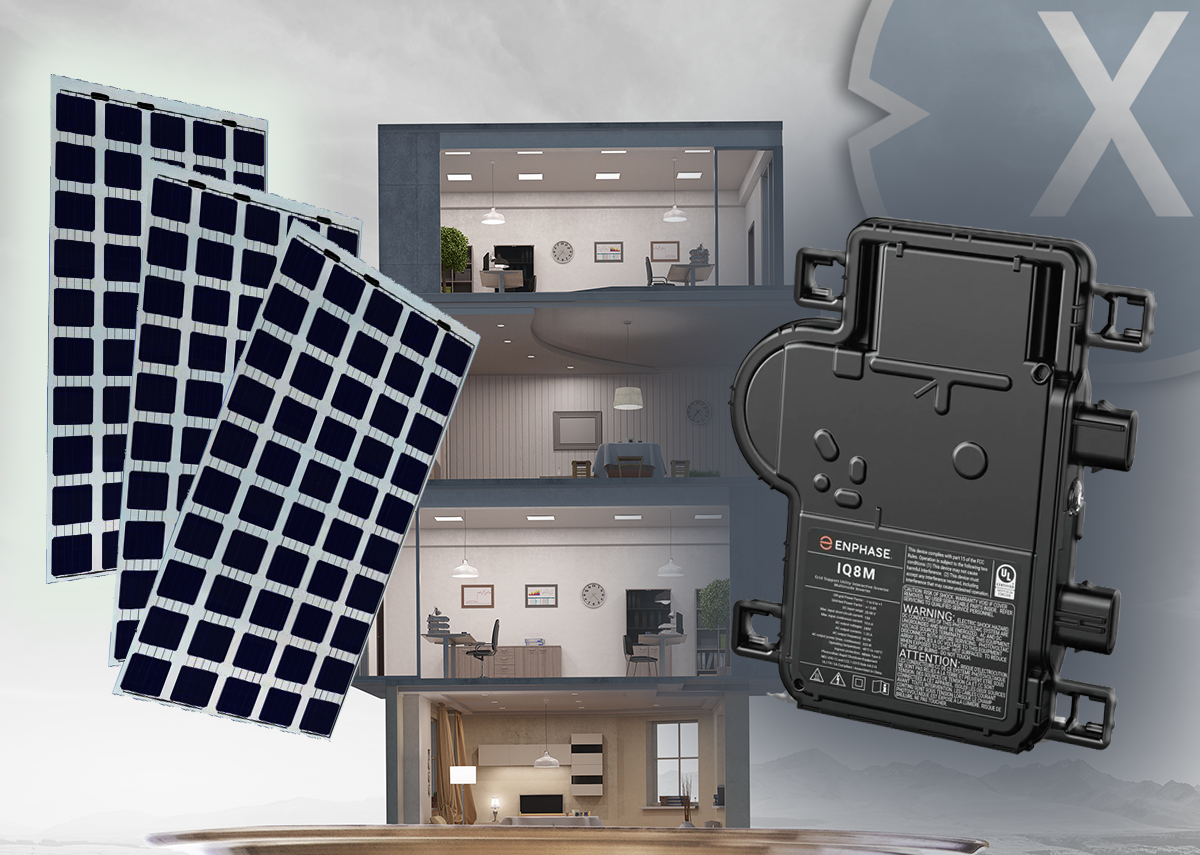
Decentralized and modular plug & play solar system with microinverter – Image: Xpert.Digital / Xpert.Solar
New & innovative: Decentralized and modular plug & play solar system with micro inverter
There are a variety of photovoltaic offerings on the market, from string inverters to hybrid to central inverter-powered solar systems.
There are also a variety of products to suit different needs of buyers. Comparing the different photovoltaic products is therefore essential in order to find the best offer. First, I would like to mention the various factors that should be taken into account when selecting a photovoltaic offer.
performance
An important factor is the performance of the system, that is, what performance and efficiency can be expected.
Price-performance-quality guarantee
Price also plays a role: photovoltaic systems should be chosen that offer a good price-performance ratio. Equally important are quality standards and warranty periods as well as specific requirements for assembly and maintenance of the system.
technology
Another factor is the different technologies used in the production of photovoltaic systems. There are various methods for producing solar cells, including monocrystalline cells, polycrystalline cells and amorphous cells. Each type has its own advantages and disadvantages in terms of efficiency and cost-effectiveness. Therefore, it is important to understand which technology best suits your needs.
Performance service support
Finally, other factors also play a role when comparing photovoltaic offers. This includes, among other things, service offers such as installation and maintenance as well as guarantees and insurance conditions in the event of damage or theft of the system.
Energy concept & planning security
In addition to the dimensions and size, should your solar system correspond to your energy concept? This primarily refers to your goals that you want to pursue with your solar system and use in the future. The development of energy costs and the general handling of costs contribute significantly to your planning security.
Suitable for:
The ideal solar system for up to 40 kWp with Enphase
In contrast to a string inverter, which records all connected solar modules (centrally), in a decentralized solar system each solar module is combined with an Enphase micro inverter.
Enphase Energy has launched the world's first microinverter capable of forming a local microgrid.
This decentralized version of a solar system has several advantages:
➡️ Related: Enphase inverter: test and experiences 2023
➡️ Each individual solar module can be monitored individually using remote monitoring software via the respective micro inverters. Performance is analyzed down to the module level, faults are detected and failures are determined.
In addition to the website browser version, there is the MyEnlighten mobile app, which allows you to monitor your Enphase system's energy production on the go.
➡️ With each micro inverter there is an MPPT (maximum power point tracker) for each individual module that is responsible for the optimal performance of the respective solar module. In the case of temporary shading, this has no negative influence on the other solar modules, in contrast to a (central) string inverter: If a solar cell is shaded, the current flow is similar to water, which is pressed by a kink in the garden hose. The entire current flow is hindered by the shading and the intensity of all solar modules connected to the (central) string inverter is restricted. As a rule, string inverter “only” 1-2 mppt for all connected solar modules.
Under the term maximum Power Point Tracking, MPP tracking or MPPT (in German, for example, “maximum performance point search”) is referred to in electrical engineering, especially in photovoltaics, a process in which the electrical load of a solar cell, a solar module or several solar modules (“strand” also “strand”) is adapted to the cells greatest possible performance can be removed. In the case of solar cells, this optimal operating point is not constant, but depends, among other things, on the radiation strength, the temperature on the solar module and the type of solar cells.
➡️ Optimizers for solar modules in shading in conjunction with string inverters are no longer necessary because the micro inverters already take on this task in partial shading. This has a big cost saving, which is why the use of micro inverters in solar systems of up to 40 kWp can be more interesting from a cost perspective than with conventional string inverters.
➡️ In addition, system updates can be uploaded to the microinverters via the Enphase Envoy Gateway (a communication interface over the Internet).
➡️ Compared to standard string inverters, Enphase microinverters come with an industry-leading warranty of up to 25 years.
➡️ Would you like to expand your solar system with additional modules? That is also no problem. The Plug & Play connector device (IQ Cabling) allows you to expand your system with additional microinverters in combination with the solar modules to be used.
Suitable for:
If a microinverter fails, solar generation can still be maintained using the remaining microinverters. However, in a system with a central string inverter, generation is completely interrupted. In addition, Enphase Solar's design is impressive in terms of safety because it runs on low-voltage alternating current.
Installing an Enphase system requires installing the microinverters, IQ battery (if required), and other essential components.
Suitable for:
The different inverters
String inverter/string inverter
A string inverter connects a series of photovoltaic modules, whereby the DC voltage supplied is converted into AC voltage. A multi-string inverter is available for systems with several strings. In private systems for generating solar power, the string inverter is by far the most commonly used.
Micro inverter
A single panel inverter is attached to a solar panel, converting the DC voltage into AC voltage. The outputs of the various module inverters are then connected in parallel and connected to the power grid.
Central inverter
As a rule, a central inverter is only used in very large photovoltaic systems and requires its own technical equipment, which often takes up many square meters. This inverter is commonly used by professional operators.
Hybrid inverter
A hybrid inverter impresses with its ability to convert the direct current from your solar system into usable alternating current. In addition, it can store solar power with an internal or external solar battery. The newer hybrid inverters are capable of emergency power or black start . As a rule, a hybrid inverter is a string inverter with extended functionality for electricity storage.
Micro inverter
Microinverters are actually nothing more than module inverters. They convert the direct current generated by the solar module into alternating current directly on site. The microinverters achieved general popularity in the area of balcony power plants or balcony solar for 1-3 solar modules, which are plugged/connected directly into the house network using a simple cold device power plug with the power socket.
Advantages of decentralized and modular solar systems
- Quick and easy assembly.
- Low material costs.
- Inverter is located directly on the solar module, flexible orientation,
- This allows the performance of the modules to be optimally converted.
- Enphase microinverters are smart grid ready .
- Enphase microinverters meet complex grid requirements in terms of voltage and decoupling management.
- Enphase inverters enable remote updates and updating to meet future grid needs.
Is Enphase microinverter solar technology capable of providing emergency power?
The IQ System Controller is not yet available in Germany. But it should come this year (2023). It detects when the power grid goes down and seamlessly switches the home from grid power to backup power.
Suitable for:
Additionally, with the new Enphase IQ8 microinverter, the solar system is capable of providing backup power in the event of a power outage without the need for battery storage.
The microinverter is available in four versions: as a solar-only version without emergency power function and as a sunlight backup version with the ability to operate off-grid without battery storage. The system is also available in combination with a small battery storage in the Home Essentials backup version and with large storage as a full energy independence version. All three of the latter off-grid solutions must be equipped with an Enphase System Controller to provide solar power to the home during a power outage.
How much can a roof photovoltaic system cost?
Anyone who has ever thought about the question will get many different answers.
More about it here:
- Warehouses, production halls and industrial halls with their own power source from a photovoltaic roof system - Image: NavinTar|Shutterstock.com
- Industrial plant with its own power source from an outdoor photovoltaic system - Image: Peteri|Shutterstock.com
- Plan solar systems with photovoltaic solutions for freight forwarding and contract logistics
- B2B solar systems and photovoltaic solutions & advice
- Plan photovoltaics for warehouses, commercial halls and industrial halls
- Industrial plant: Plan a photovoltaic open-air system or open-space system
- Plan solar systems with photovoltaic solutions for freight forwarding and contract logistics
- B2B solar systems and photovoltaic solutions & advice
That's why Xpert.Solar as your partner and consultant for your energy concept with a solar system!
I would be happy to serve as your personal advisor.
You can contact me by filling out the contact form below. I will get back to you right away
I'm looking forward to our joint project.
Xpert.Digital – Konrad Wolfenstein
Xpert.Digital is a hub for industry with a focus on digitalization, mechanical engineering, logistics/intralogistics and photovoltaics.
With our 360° business development solution, we support well-known companies from new business to after sales.
Market intelligence, smarketing, marketing automation, content development, PR, mail campaigns, personalized social media and lead nurturing are part of our digital tools.
You can find out more at: www.xpert.digital – www.xpert.solar – www.xpert.plus



